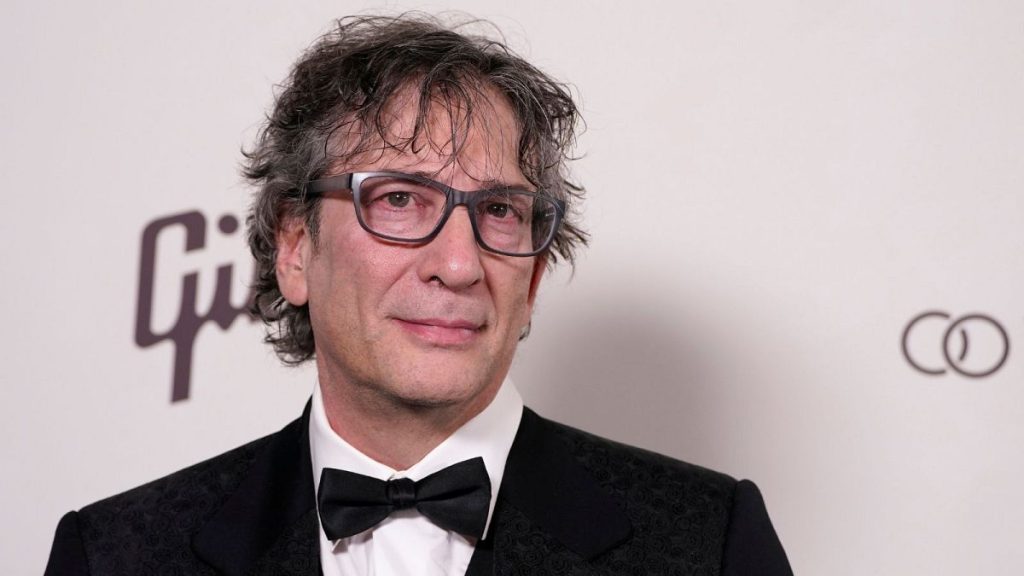Neil Gaiman Faces Sexual Assault Allegations: A Detailed Examination
Neil Gaiman, the acclaimed British author renowned for works like "Good Omens," "The Sandman," and "American Gods," has found himself embroiled in a controversy surrounding allegations of sexual assault. A recent exposé published by New York Magazine brought to light accusations from eight women, detailing instances of alleged assault, abuse, and coercion spanning several years and locations. Four of these accounts were initially aired in a Tortoise Media podcast earlier in the year, but the New York Magazine article significantly amplified the scope and gravity of the claims. Gaiman vehemently denies all allegations of non-consensual sexual activity, insisting that while he acknowledges imperfections in his past behavior, he has never engaged in such acts.
The allegations against Gaiman paint a picture of a man who, while charismatic and creative, allegedly used his position of power and influence to manipulate and exploit women. The accusers’ stories describe a pattern of behavior that allegedly involved leveraging his fame and connections to coerce women into sexual encounters. These accounts depict a troubling dynamic where Gaiman’s alleged actions left the women feeling used, violated, and traumatized. While Gaiman denies any non-consensual activity, the sheer number of accusers and the consistency of their narratives raise serious questions about his conduct. The allegations have ignited a firestorm of debate and discussion, dividing public opinion and casting a long shadow over Gaiman’s career and legacy.
Gaiman’s response to the allegations has been a mix of denial and contrition. He acknowledges flaws in his past behavior, admitting to being "emotionally unavailable while being sexually available," and expresses regret for causing emotional pain. He maintains, however, that all his interactions were consensual and that the accusations misrepresent the nature of these relationships. He characterizes his past self as "self-focused" and "not as thoughtful as I could or should have been," acknowledging that he was "careless with people’s hearts and feelings." While this apology addresses some of the concerns raised, it falls short of accepting responsibility for the alleged assaults. This carefully worded response attempts to balance acknowledging personal shortcomings with maintaining his innocence regarding the most serious allegations.
One of the most prominent accusers, Scarlett Pavlovich, alleges that Gaiman abused her multiple times, beginning the night they met in 2022. Pavlovich, who met Gaiman through his then-wife, Amanda Palmer, on a New Zealand island where the couple resided with their son, first publicly shared some of her allegations in the Tortoise Media podcast. The New York Magazine article expands on her account, providing a detailed and disturbing narrative of the alleged abuse. Pavlovich claims to have filed a police report against Gaiman in January 2023, accusing him of sexual assault. New Zealand authorities have declined to comment on whether an investigation is underway, adding another layer of complexity to the unfolding story.
The allegations against Gaiman highlight the power dynamics inherent in relationships, particularly those involving individuals with significant influence and fame. The accusers’ stories underscore the vulnerability of those who may feel pressured or coerced into situations they would not otherwise choose. While Gaiman insists on the consensual nature of his interactions, the women’s accounts suggest a different reality, one where their agency and autonomy were allegedly compromised. This case, like many others involving high-profile figures, raises crucial questions about consent, power imbalances, and the challenges faced by those who come forward with allegations of abuse.
The fallout from these allegations remains to be seen. The accusations have tarnished Gaiman’s public image and raised serious questions about his character. Whether or not formal charges are filed, the impact on his career and legacy is undeniable. The public is left grappling with conflicting narratives, trying to reconcile the image of a beloved author with the disturbing allegations leveled against him. The case serves as a stark reminder of the ongoing conversation surrounding sexual assault and the importance of believing and supporting survivors. It also underscores the need for accountability, regardless of an individual’s status or accomplishments. The truth behind these allegations may remain elusive, but the conversation they have sparked is undeniably crucial.














